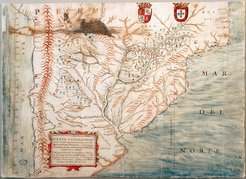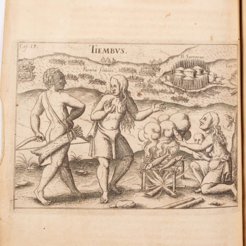Women and the uses of criminal justice: colonial normativities in the southern Iberian-American Worlds (17th–18th centuries)
Forschungsprojekt

My research project centres on the strategic actions employed by women in criminal lawsuits within secular and ecclesiastical jurisdictions in the colonial societies of southern Iberian America. I investigate how women applied their knowledge of normativity in courts to achieve their interests. Analysing the cases alongside other local sources enables me to identify the interactions between the parties, their families and their neighbourhoods, making it possible to access how women’s actions in the lawsuits affected society. The outcomes of these cases were often determined more by these social effects than by the institutional decisions made by magistrates. Women strategically leveraged jurisdictional institutions to trigger desired social dynamics, mostly in pursuit of a non-institutional kind of ‘justice’. Their claims were intended to lead to consequences that only society, in accordance with specific (non-written) normativities, could provide.
The social use of criminal justice meant that, even though the institutions could not provide the desired responses, they could trigger them. These processes are crucial factors in accessing women’s agencies and perspectives, revealing what they pursued with regard to the society in which they lived. In going to court, women’s agencies encompassed the construction of arguments to (a) manifest their discontent in conflict situations, (b) require what they knew the normativities guaranteed them, (c) denounce an injustice committed against them, (d) threaten the opposing party or (e) humiliate them in front of the neighbourhood or the whole city, (f) revenge themselves against someone, or (g) try to restore their honour after premarital sex in a breach of promise case.

My central inquiry explores how, why and in what kind of conflict situations women made use of criminal justice, revealing their manipulation of different sets of normativities. I examine patterns in the sources regarding the crimes in which women were involved in order to identify the knowledge of normativity at play and to analyse how these actions were perceived as conflict resolution by the parties. Through this approach, my research delves deeply into the ways in which women employed colonial normativities and contributed to normative production on a global scale, while also taking into account the local sphere. In doing so, I also shed light on women’s biases, world views, sociabilities, social connections, and the support networks they might have cultivated.
The project focuses on the south of Iberian America, specifically the northeastern part of Río de la Plata, during the late 17th and 18th centuries. Due to political disputes between Spanish and Portuguese territories, boundaries in this region were unclear. While a number of treaties attempted to establish territorial agreements, many villages were founded amid shifting borders, and the colonial society of the southern Iberian-American world was built in these dynamic circumstances. The project will explore how the movement of borders was experienced at the local level by looking at the normative production and construction of institutions from both Portuguese and Spanish jurisdictions. To do so, I analyse the effects it had on the lives of the inhabitants when they had contact with these jurisdictions, particularly women who engaged in criminal lawsuits.

